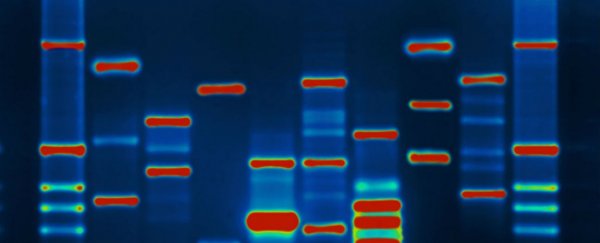When you're young, it's easy to convince yourself that a few years here or there at the end of your life isn't such a big deal, but one, two, or three years extra with your friends and family before the eternal unknowingness of death is really nothing to sniff at.
And now researchers have identified two gene variants carried by more than two-thirds of the global population that can cut your average lifespan by up to three years. That means, regardless of what you do with your body, the guy next to you could have three years on you, just because of how your genomes were put together.
Researchers from University of Edinburgh in the UK figured this out by analysing genetic information from more than 152,000 people who participated in a long-term health record known as the UK Biobank study. They identified two gene variants whose presence on the genome correlated to whether a person lived to their average life expectancy, or fell short by a number of years.
The variants (of the APOE gene and the CHRNA3/5 gene) are located on two separate areas of the human genome, and more than two-thirds of us carry one of them. But around three in every 1,000 people will inherit both variants from their parents, and together they can have a significant effect on how long you live.
Why? Well, for reasons that are currently unclear, these particular variants appear to increase a person's risk in developing some of the most severe disorders you can hope to avoid in life.
As the team explains, the CHRNA3/5 variant has been linked to an increased risk of lung cancer and severe respiratory problems in people who smoke, and the APOE variant has been associated with a risk of Alzheimer's disease, heart disease, and high cholesterol.
Interestingly, we know that Alzheimer's disease tends to affect women more than men, and when comparing men and women in the UK cohort, the researchers found that the APOE variant had a greater effect on women, whereas the CHRNA3/5 variant linked to lung disease had a greater effect on men.
So if everything is predetermined in our genes, what's the point in trying, right? As a separate group of scientists, who have just embarked on a long-term study to figure out why a tiny Italian village of smokers and eaters keep living to 100 and beyond have made clear, how long you live will always result from a mysterious, uneven combination of genetic and lifestyle factors, so quit blaming what your parents gave you.
"Although the effect of these genetic variants on lifespan is surprisingly large, it is important to remember that this is only part of the story," one of the researchers, Peter Joshi from the University of Edinburgh, pointed out. "Lifestyle has the greatest impact on how long we live and that is under our control."
Of course, this is the very beginning of an investigation into what these gene variants could be doing to affect your life expectancy, but Joshi and his team hope to unravel some of the pieces, such as why the same APOE variant that's been linked to a higher risk of Alzheimer's and heart disease has also been linked to centenarianship (living to 100) and survival to 90 years. It'd be a surprise to no one to hear that the way our genes regulate our existence is hella complicated, but we're slowly plucking out things we can use.
The results of the study have been published in Nature Communications.
